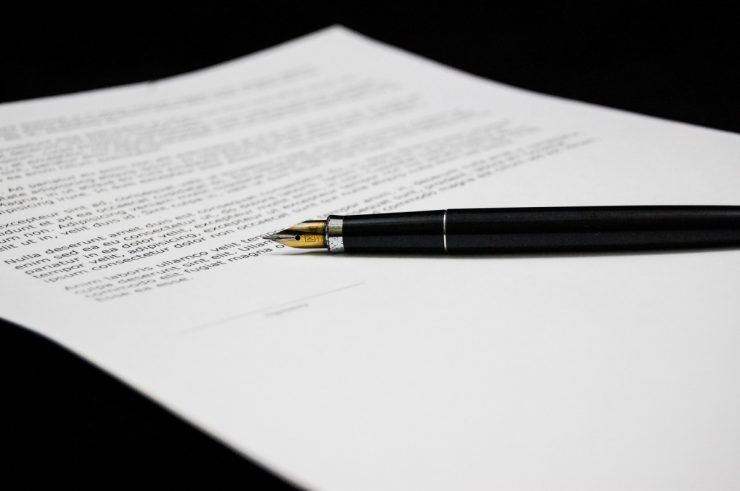The Bureau of Labor Statistics expects job growth for event planners to grow at a rate of 11% from 2016 to 2026. This is great news for event organizers like you who are looking to continue to grow your business.
However, if you find that you’re getting leads during this growth period but aren’t converting those leads into clients, then the growth won’t really mean much to you.
How do you convert leads to clients? It’s all in the event proposal. Here’s here to write the perfect proposal that’ll help you close the deal every time.
Pay Attention in the Initial Meeting
Some of the most important information will come from the initial meeting you have with your client. Pay close attention to everything they say!
You won’t be able to form a formal proposal if you don’t understand what they’re looking for. This means paying attention in order to avoid event planning mistakes. Ask questions about things like:
- Time
- Desired Location
- Catering
- Color Scheme
- Visual Elements
- Guest List
- Other Party/Event Examples
The list goes on, but you get the idea. Make your initial meeting as thorough and personal as possible. This will help you craft an event planning proposal that truly suits your client’s needs.
Then, when you’re ready to write the proposal, take a look at what a formal proposal example actually looks like. They’re usually not formal unless you’re dealing with a corporate client.
If you’re dealing with a smaller company or individual client, then you can relax a little bit.
Speak to the points they addressed in the initial meeting and keep in mind that you’re creating this proposal to win them, not interject with your opinions about the event.
Take Cues from Business Proposals
Business proposals are a way of offering goods and services to external clients. When beginning any event planning document then, it makes sense to take cues from how professionals create a business proposal.
Think about some of the same things, such as:
- Who is this event for? Think about who is going to be making the final decision and cater your proposal towards them.
- What is your unique value proposition? What are you offering that no other event planner will offer? Make this clear in your proposal from the get-go.
- What is the budget? Having a clearly defined budget beforehand will ensure you’re not crafting a proposal that’s going to immediately get turned down because it’s too extravagant.
- What is the schedule? Get to know the client’s timeline and ensure you accurately lay out all the event planning schedule for them in the proposal. This shows dedication and attention to detail.
- What are the costs? Calculate the costs of carrying out the proposal. This is more of a benefit for your event planning company, as it will help ensure that you’re going to profit from this event.
Organizing your ideas, services, and proposal like this will help ensure you’re covering all of your bases before presenting it to your client.
Now, it’s time to write the actual proposal.
Write a Well-Structured Event Proposal
You can pay attention to the initial meeting and take great notes from business proposals, but if you don’t structure your event proposal in the right way, it won’t make a difference.
Using all of the information you’ve gathered and the planning you’ve done above, you’ll want to first start with the executive summary.
Executive Summary
Similar to a business proposal, the executive summary of an event proposal will serve to summarize your client’s needs and how you propose to address them.
Here you can write out an event description and touch on the goals of the event. This is to demonstrate that you’ve heard exactly what the client wants and needs.
It’s important to put this at the top before diving into anything else. Clients want to know you understand what they’re looking for before moving on to another proposal from a different planner.
If you have any helpful suggestions, put them here. It also helps to put photos of other similar events that you planned in the past.
Company Summary
Here’s your chance to show off who you are as an event planner. Brand this as much as you can with your logo or company information.
If you are an individual, you can include a resume or event planning cover letter. However you choose to present your company summary, you’ll want to touch on:
- Your experience and how long you’ve been working in the industry
- The types of events you have planned
- Capabilities and specialties (fundraising, corporate events, etc.)
- References to past clients who can vouch for you
- Other skills that are relevant such as project management, hospitality work or even internships
If you have any special training, skills, or certifications that make you especially qualified for this job, put them here.
Services
This is a way to show off exactly what you plan on offering your client. Again, it’s important to ensure you’re covering everything you client has told you they need.
To make sure this is well-organized, structure it with headings and subheadings. If you’re planning a wedding, for example, structure the headings by smaller events such as “Reception Dinner” and “Ceremony.”
Under each heading, create a bulleted list of all of the services you will provide them with (hiring staff, ordering and serving food, organizing tables, etc).
Be sure to make this as complete as possible. Include your planning services in this and how many hours you think everything will take.
Budget
This is a standard and important part of any party plan template. Every client is going to know how much the whole thing will cost!
Be clear about this and don’t try to hide any costs or fees. On the contrary, it can be a good idea to be open about the costs while also looking for as many discounts as possible.
Let them know that if they book a venue early, they might be able to receive an early booking discount. Any type of offer like that will help your proposal stand out.
Access Event Planning Resources
Following the guidelines above should help you write an amazing event proposal that will convert leads into paying clients.
If you find that you still need a little guidance, however, you can check out our event planning resources where you’ll find checklists, planning templates, and more to help get you started.
You’re just a click away from signing your next client!







